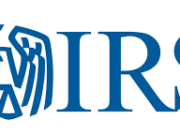December 19,2014
VIA E-MAIL and U.S. MAIL
Available for download here.
Mr. Howard Shelanski
Administrator
Office of Information and Regulatory Affairs
725 17th Street, NW Washington, DC 20503
Re: Need For Proper Rulemaking Processes and Analyses in Upcoming IRS Proposal
Dear Mr. Shelanski:
Just over a year ago, the Internal Revenue Service (IRS) and Department of Treasury published a notice of proposed rulemaking (NPR) for the stated purpose of providing “guidance to tax-exempt social welfare organizations” on candidate-related political activity that would not be considered “to promote social welfare” under IRC §501(c)(4). 78 FR 71535-42, Nov. 29, 2013.
IRS now intends to issue a newly-proposed rule as a followup. For the reasons explained below, we are quite alarmed by the Administration’s most recent “Regulatory Agenda” entry regarding this proposed rulemaking, released November 24,2014. http://www.reginfo.gov/public/do/eAgendaViewRule?pubid=20141O&RIN=1545-BL81.
Significant Procedural Defects In 2013 NPR
In issuing the 2013 NPR, IRS made the following determinations: (1) the NPR was not a “significant regulatory action” under Executive Order (EO) 12866, as supplemented by President Obama’s EO 13563; (2) the rule as proposed would not have a “significant economic impact on a substantial number of small entities,” and (3) the general notice-and-comment rulemaking requirements of the federal Administrative Procedure Act (APA) did not apply to the NPR. 78 FRat 71540. Based on these determinations, IRS did not prepare a regulatory assessment under the EOs cited above and did not prepare a regulatory flexibility analysis under the Regulatory Flexibility Act (RFA). Id.
Despite IRS’s determination that the NPR was not a “significant regulatory action,” IRS stated in a notice issued on its Website May 22, 2014 that the NPR “generated over 150,000 written comments- the most comments ever received by Treasury and IRS on a proposed tax regulation.” http://www.irs.gov/uac/Newsroorn/IRS-Update-on-the-Proposed-New-Regulation on-501(c)(4)-0rganizations. A review of the rulemaking docket shows that comments sharply critical of the NPR came from all ends of the political spectrum, including (to name only a very few) the American Civil Liberties Union, the League of Women Voters, the Alliance for Justice, and the Tea Party Patriots. Moreover, IRS’s determination could hardly be squared with the EO’s requirement that proposals raising “novel legal or policy issues” be deemed a “significant regulatory action.”
Despite IRS’s determination that the NPR would not have a “significant economic impact a substantial number of small entities,” numerous comments in the docket dramatically demonstrate the opposite. We note that Ms. Nan Aron of the Alliance for Justice explained in The Nation magazine that there are more than “86,000 mostly small” §501(c)(4) organizations nationwide. Ms. Aron’s critique of the NPR is posted at http://afjactioncampaign.org/the-nation publishes-nan-aron-critique-of-irs-501c4-proposal/.
This substantial number of small entities (and non-profits are within the RFA’s definition of small entities) should have triggered the RFA process. Because the Small Business Administration (SBA) must be involved in the proper administration ofthe RFA, we are copying SBA Administrator Maria Contreras-Sweet on this letter.
Our April 2014 OIRA Meeting and IRS’s Re-Proposal Announcement
The undersigned met with IRS and OIRA personnel in OIRA ‘s offices on April3, 2014 to discuss IRS ‘s failure to comply with EO 12866/13563 and RFA requirements in issuing the NPR. Shortly after our meeting, we began reading press reports that IRS was considering are proposa1 for further public comment before proceeding to draft a final rule. Then we read in the May 22, 2014 IRS Website notice cited above that IRS had indeed decided to develop a “revised proposed regulation” after considering all of the public comments that have been filed, and to hold a public hearing after that revised proposal is published.
We endorse IRS’s decision to take a fresh look at these issues with a new proposed rule. But we remain convinced that the obvious significance of this rulemaking and the fact that a significant number of small entities will be affected obligates IRS – this time -to follow the EO and RFA process.
IRS‘s November 2014 “RegulatoryAgenda” Announcement
The Administration’s most recent “Regulatory Agenda” posting regarding this proposed rulemaking was released November 24, 2014. See http://www.reginfo.gov/public/do/eAgendaViewRule?pubid=20141O&RIN=1545-BL81. In response to the entry labeled “Regulatory Flexibility Analysis Required,” IRS says “No.” In the entry asking whether the proposal is “Major” requiring compliance with the EO’s, IRS says “Undetermined.” Elsewhere in the form, IRS has labeled the proposal “Nonsignificant.”
In light of all the above, we find IRS’s apparent determination to bypass the EO and RFA requirements extremely disappointing and short-sighted. Such a determination would obviously call into question the legal underpinnings for any final rule that might follow. Therefore, we urge IRS and the Administration immediately to reconsider this approach, comply with the law and follow the appropriate EO and RFA processes. Consistent with this Administration’s policies as reflected in EO 13563 and many other pronouncements, small entities and all other interested parties are entitled to a full evaluation of the costs, benefits, and burdens from their government.
Applicability of APA Notice and Comment Procedures
Finally, we are mystified by IRS’s finding in the 2013 NPR to the effect that the proposed rule is not subject to Administrative Procedure Act (APA) notice-and-comment procedures. 78 FRat 71540. Since IRS appears to be following APA notice-and-comment procedures (although it has not been following EO and RFA procedures), we are not sure why IRS made such a finding. We believe any such finding is wholly erroneous, and urge that IRS refrain from such confusing claims in the upcoming revised proposed rule. We note that in its statement of February 25, 2014 regarding the NPR, the Office of Management and Budget stated that IRS and Treasury “will follow standard agency rulemaking procedures” in this rulemaking.
Sincerely,
Cleta Mitchell
Richard G. Stoll
Foley & Lardner LLP
Counsel to Tea Party Patriots, Inc.
Reed D. Rubinstein
Senior Vice President
Cause of Action
Eric Wang
Senior Fellow
Center for Competitive Politics
Barnaby Zall
Weinberg, Jacobs & Tolani, LLP
Cc: Honorable Maria Contreras-Sweet, SBA Administrator
Mr. Dominic Mancini, Deputy OIRA Director
Mr. Alexander Hunt, OIRA Information Policy Branch Chief
https://www.ifs.org/wp-content/uploads/2014/12/Letter-re-IRS-501c4-rulemaking.pdf














